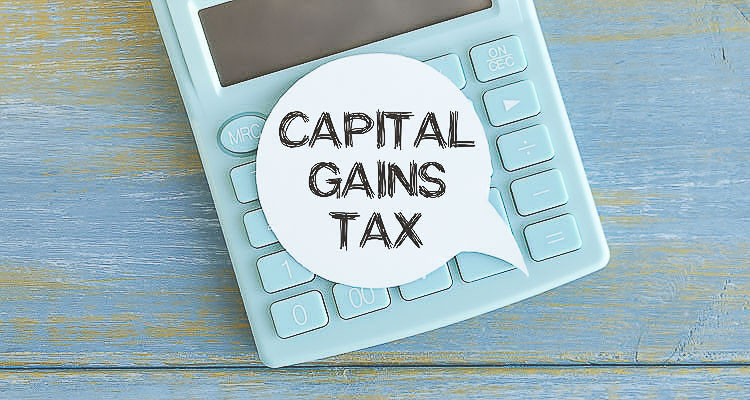
Jason Mercier of the Washington Policy Center offers a recap of arguments that the capital gains tax is an excise tax and those claiming it is unconstitutional
Jason Mercier
Washington Policy Center
The briefing is now complete for the capital gains income tax case. All we can do now is wait to see what nine state Supreme Court justices decide. Will Washington acknowledge what every other state, the IRS and other countries in the world know to be true (a capital gains tax is an income tax), or will our justices agree with lawmakers that Washington has discovered a brand new way to tax capital gains income as an excise tax? While we wait for the answer, here is a summary of the amicus briefs filed earlier this week.

Briefs arguing the capital gains tax is an excise tax:
- Law professors – “Both this Court’s and U.S. Supreme Court’s older decisions have allowed opponents to characterize almost any tax levied on the use or transfer of property as a tax burdening that property itself, as respondents do here. But only occasionally and in a much different time have those arguments succeeded, as in Culliton and in Pollock. Culliton’s and Pollock’s reasoning—that a broadbased income tax is a tax on property so any tax on income is a property tax—is far from compelling in today’s transaction driven economy. And this Court has refused to blindly adhere to this syllogism in its excise tax jurisprudence. It should refuse to do so here. At a minimum, this Court should ensure that Culliton’s reach is limited and refrain from broadening Culliton’s dubious logic to invalidate a tax that operates only upon the transfer of a capital asset. Rather than extend case law that has never been applied to bar a tax narrowly targeted to the economic benefits attendant to the transfer of property, this Court should rely on its substantial excise tax precedent to uphold the Legislature’s decision to tax the gains realized on the transfer of a capital asset under ESSB 5096.”
Note – The professors’ home states all say a capital gains tax is an income tax.
- Unions and activists – “By passing a capital-gains excise tax, Washington has joined the vast majority of states that tax capital gains. It is a small but important step on the path to improving Washington’s regressive tax system, so that all Washingtonians pay no more and no less than what they justifiably owe toward the State’s provision of the basic services that benefit all Washingtonians. The revenue generated by the tax will be used to improve public education, and to increase access to and affordability of child care and early learning, programs with lifelong benefits for children and parents and an extraordinary return on investment for the State and all its residents. The tax imposes a modest burden on those taxpayers who can most afford it, and it is entirely implausible that it will cause Washington’s wealthiest residents to flee to another state without income or capital-gains taxes. In short, it is a common-sense measure that benefits all Washingtonians while harming none, and the Court should uphold it as a proper excise tax under Washington law.”
Note – Only states with income taxes tax capital gains income. No state has a standalone capital gains tax. Washington would be the first if affirmed.
- Educators – “At most, Plaintiffs’ attempt to distinguish the capital gains tax from other excise taxes amounts to a distinction without a difference. The Court should follow its consistent precedent in this case and hold that the capital gains tax, which is triggered by and imposed on sales of capital, is an excise tax…Extending Culliton’s ‘bewildering,’ inconsistent income tax precedent to the capital gains tax would conflict with extensive jurisprudence classifying taxes on transfers of property as excise taxes and undermine the very purpose of stare decisis, which is consistency.”
Note – The state Supreme Court in 1960 said its prior rulings were sound and a constitutional amendment is necessary to impose a graduated income tax.
- Racial equity group – “As a result of this democratic and self-governed process, the Legislature enacted the capital gains excise tax to fund the state’s paramount duty to educate every resident child regardless of race or household wealth. This Court should respect and maintain this democratic power by upholding the constitutionality of the capital gains tax. Centuries of institutional and economic racism have created vast racial wealth disparities for BIPOC. Regressive tax codes further perpetuate these disparities by requiring those least able to pay (disproportionately BIPOC) to bear the brunt of the tax burden. In 2021, in response to advocacy from a broad coalition of community organizations, the Legislature enacted a capital gains excise tax as a step toward remedying Washington’s inequitable tax code and ameliorating the lasting effects of racism.”
Note – Washington voters have rejected 10 straight income tax ballot measures, including six constitutional amendments.
Briefs arguing the capital gains tax is an unconstitutional income tax:
- BIAW and the Washington Retail Association – “The legislation, by its own admission, is a tax on an individuals’ receipt of capital gains, not an excise tax on capital transfers, as the State contends. The State’s effort to mischaracterize the legislation as an excise tax represents a radical departure from how every other jurisdiction in our nation treats capital gains. Starting with the federal government and the Internal Revenue Code, on which Washington’s tax is entirely modeled and based, the gain on sale of long-term capital assets is indisputably treated as personal income. The forty-one states that levy a tax on capital gains also treat them as income. The only states that do not tax capital gains as income are those that levy no income taxes at all — Alaska, Florida, Nevada, South Dakota, Texas, and Wyoming — and the two states, New Hampshire and Tennessee, that tax only dividends and interest income earned by individual taxpayers. Thus, every jurisdiction in our nation that taxes capital gains treats them as income, and duly recognizes its capital gains tax as an income tax. The solitary exception is Washington, thanks to ESSB 5096. With the vote forty-nine to one, the unanimous weight of authority compels the conclusion that the capital gains tax imposed by ESSB 5096 is actually an income tax, not an excise tax.”
- Association of Washington Business, Technology Network, Citizen Action Defense Fund, and Ethnic Chamber of Commerce Coalition – “The amici are concerned about the impact this tax will have on businesses and business owners in Washington if the tax is upheld. Amici members should not be subject to a substantial disruption of the state’s tax system because the legislature decided to ignore the plain meaning of the Washington Constitution and nearly a century of judicial precedent regarding income taxes in Washington…Amici agree with the superior court that the capital gains tax imposed by ESSB 5096 is labeled an excise tax but is an income tax in all other aspects. If it is held to be an excise tax, however, it creates the risk of double taxation. This Court should not condone double taxation as a matter of law or policy.”
- National Tax Economists and Policy Analysts (WPC joined) – “For almost 100 years, income taxes have been unconstitutional in the state of Washington. Ballot measures to allow for an income tax have been rejected by voters in 1934, 1936, 1938, 1942, 1944, 1970, 1973, 1975, 1982, and 2010. To circumnavigate this constitutional command, the legislature in 2021 imposed what it calls an excise tax on capital gains income. Respondents challenged this as an income-tax-in-disguise. The Superior Court below determined this tax to be an income tax and thus unconstitutional…Taxes on capital gains are taxes on income. Excise taxes do not have exemption levels, nor are they imposed on annual totals, nor do they track the filing deadlines and requirements of the federal income tax. Income taxes do all those things. Washington taxpayers will fill out a return due the same day as the federal income tax, and the base of the tax will be derived from capital gains taxed under the federal income tax and state income taxes. The IRS joins every state and every tax expert in agreeing that capital gains are income…The Washington capital gains tax is not a per unit consumption tax on individual transactions but on the aggregate total income itself, measured as a percentage of income and imposed broadly on all economic gains. The tax includes exemptions and deductions to limit the scope of the tax to certain individuals, rather than applying universally to an activity. The tax is not based on a transaction, but on the net aggregate capital gains earned by a person in a year. These are all features of income taxes, not excise taxes.”
The state Supreme Court will hear oral arguments on the capital gains income tax on January 26, 2023.
Jason Mercier is the director of the Center for Government Reform at the Washington Policy Center.
Also read:
- POLL: Why did voters reject all three tax proposals in the April 22 special election?Clark County voters rejected all three tax measures on the April 22 special election ballot, prompting questions about trust, affordability, and communication.
- Opinion: The war on parental rightsNancy Churchill argues that Olympia lawmakers are undermining voter-approved parental rights by rewriting key legislation and silencing dissent.
- Opinion: An Earth Day Lesson – Last year’s biggest environmental victories came from free marketsTodd Myers argues that Earth Day should highlight free-market solutions and grassroots innovation as more effective tools for environmental stewardship than top-down mandates.
- Opinion: Time to limit emergency clauses and give voters a choiceTodd Myers urges the governor to remove emergency clauses from bills that appear intended to block voter input rather than address real emergencies.
- Letter: C-TRAN Board improper meeting conductCamas resident Rick Vermeers criticizes the C-TRAN Board for misusing parliamentary procedure during a controversial vote on light rail.










